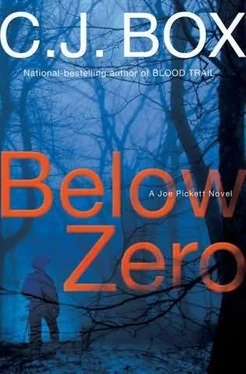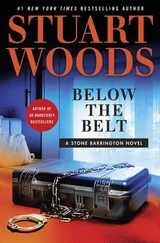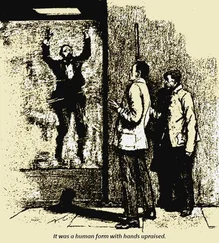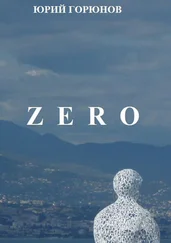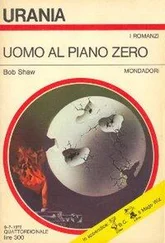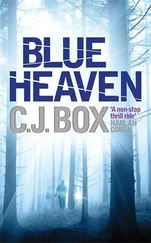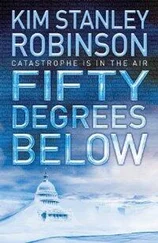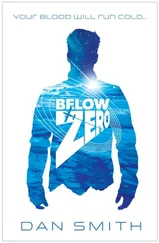Joe paused. “Why didn’t you tell me that before?”
“I never really thought about it,” Nate said, shrugging. “You told me you saw April in the first trailer that burned down. I knew they had kids in that camp besides her, so why would I assume she was one of them on that snowmobile?”
Joe conceded, took a sip.
“Now that I think about it,” Nate said, letting the sentence drift away.
“Yeah.”
“You feel guilty,” Nate said. “You’ve always felt guilty. That’s why you were crazy with rage and almost killed that FBI agent who fired the shot. It wasn’t about him-it was about you.”
Joe stared into his coffee cup, studied the film of oil on the top of the liquid. “What’s your point?”
Nate said, “It isn’t April out there. But you want it to be. You want to apologize and make things right. That’s how you are, Joe. You’re a good man.”
“Shut up, Nate,” Joe said wearily.
“I was there. You wanted to trust the system and the government. You wanted to believe the authorities would do the right thing. You never thought they’d fire and torch the Sovereign compound with all those people in it. You didn’t realize then that the scariest thing on earth is a bureaucrat with a gun.”
“Enough.”
“HOW’S ALICIA DOING with the new baby?” Joe asked after a long while. They’d both been silent, each with their own thoughts about that afternoon in the campground.
Alicia Whiteplume was Nate’s woman, a schoolteacher on the Wind River Indian Reservation, and the mention of her name produced a goofy, sloppy grin from Nate. Joe was still not used to seeing Nate’s face light up.
“Still smitten, I see,” Joe said.
“With both of them. I just don’t see them enough, you know?”
“Believe me, I know.”
“I hate having to hide out, Joe. I’m never turning myself in, but I hate hiding out. I’m starting to consider my options.”
“You mean moving?” Joe didn’t blame him, but Nate was a part of him now and he’d saved Joe’s life more than once. And he was Sheridan’s master falconer.
“Either that,” Nate said, lowering his voice, speaking in his breathy Clint Eastwood cadence, “or taking out every damn one of them who is after me.”
Joe groaned. “Nate, you forget I’m a peace officer who took an oath. I take that oath seriously. You just can’t say things like that around me.”
Nate smiled. “Sorry, I forgot.” Then: “I’ve no plans yet. I won’t just vanish.”
“Good.”
“Because it sounds like you might need me on this one.”
Joe nodded.
“You want me to come with you now?”
“No, not yet. I’m going to be working closely with the people who want to throw you back into jail. You don’t want to be around. I don’t want you around.”
“But you’ll let me know if you need help.” It was a statement, not a question.
“Yup. What’s the best way the contact you? When I need your help, I might be too far away to come down and get you in this canyon.”
Nate dug into his cargo pants and pulled out a satellite phone.
“You get a signal all the way down here?”
Nate shook his head. “Of course not. I don’t even think the eyes in the sky can see down into this place. But twice a day I hike up the trail to the top to check for messages. And if for some reason I don’t respond right away, call Large Merle and he’ll let me know.
“Just send a text,” Nate said. “You know how to do that, right?”
AS JOE PARTED the camo netting to leave, Nate said, “I never really thanked you for what you did for me last year, Joe. I bet your life has been hard since then.”
Joe said, “If I trip over that wire on the way out and the shotgun goes off and I never find April, I’m really going to be pissed at you.”
Craig, Colorado
THREE HUNDRED MILES FROM HOLE IN THE WALL CANYON, hours after Joe cleared the rim and hiked toward his pickup to drive to Cheyenne, she leaned against the stall of the gas station bathroom in Craig, Colorado, and listened to Stenko retching horribly in the men’s next door. The sounds were awful, and she was frightened.
It had already been a long day. Stenko had awakened her deep into the night and hurried her out of the hotel in Aspen into the SUV. Robert was already inside the car. He was anxious, jittery, super-charged, thumping a rapid-fire beat with his hands on the dashboard like a drummer. “Go man go,” Robert said to Stenko, “Go-go-go-go-go…”
They drove north until dawn came pink and glorious, through still-sleeping Glenwood Springs and Rifle. Robert was still jazzed and had been talking incessantly about the need to change vehicles and tactics, but she tuned him out and went back to sleep. At a convenience store in Meeker, Robert pointed out a local Chevy Suburban parked and running while the driver was inside getting coffee. Stenko pulled to the side of the building while Robert got out, duck-walked to the Suburban, and drove it away. Stenko followed, cursing under his breath. A half hour out of town, when the terrain emptied of homes and buildings, Robert took a beat-up old dirt road and they bounced along it for what seemed like forever. Finally, the Suburban brake lights flashed and Stenko slowed to a stop.
Stenko addressed her by looking in the rearview mirror. “April, you’ll need to gather up all your things and take them to the Suburban. We’re making a change.
“This isn’t a hybrid, son,” Stenko said as he climbed into Robert’s car.
“I know,” Robert grumbled. “These people out here give us no green options, but you’ll just have to make it up on the other side.”
The morning was cool and smelled of dust and sagebrush. After climbing into the far back seat of the Suburban, she watched with fascination as Robert sprayed lighter fluid on the seats of Stenko’s SUV and tossed in a match. With the new Suburban, they pushed the burning vehicle over a cliff into a deep arroyo. The crash on the bottom was fantastic.
Their only other stop before arriving in Craig was at a roadside rest area, where Robert stole the plates off a car and replaced them with the plates from the Suburban.
SHE WAS STARING VACANTLY out the window when a cell phone burred and for a moment she thought it was hers, thought she’d been betrayed. Had she forgotten to turn the ringer off?
But Robert didn’t even turn around. To Stenko, he said, “Are you going to get that?”
“I forgot I even had it,” Stenko said, slapping absently at his shirt pockets, then finally digging it out of his trousers. He looked at it for a moment, said, “One of my friends in blue…” and opened it up.
Stenko said very little, prompting the caller to continue with several “uh-huhs.” Then he closed the phone and tossed it on the seat next to him.
“Who was it?” Robert asked.
“Like I said, one of my friends in blue.”
“What’s up?”
“Leo’s wife called the station. She doesn’t know where he is and she wants him found. She thinks he’s taken up with a chippie and relocated to Wyoming.”
Robert said, “Wyoming? What the hell’s in Wyoming?”
Stenko said, “My ranch.”
Robert did a dry spit take and the car weaved until he jerked it back into his lane. “You own a ranch?”
“I think I do, anyway. The more I think about how things went down with Leo, the more I become convinced I own a ranch.” Stenko sat up in the seat and smacked his forehead with the heel of his hand. “That damned Leo. He always wanted to be a cowboy-he told me that once. Here’s this little mousy guy who grew up on the South Side getting his lunch money stolen from him every day on the way to school, but he secretly wants to be a cowpoke. It used to crack me up.”
Читать дальше
